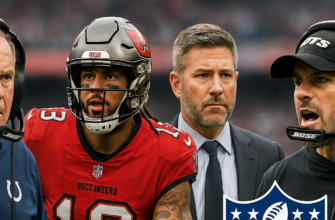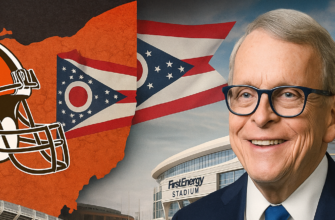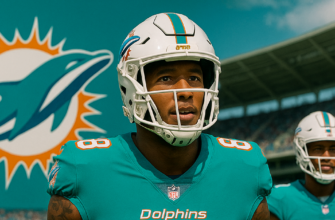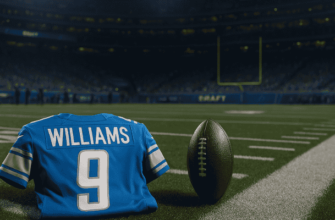Jets Owner Criticizes NFLPA Survey for Facility Grades
The New York Jets face scrutiny after receiving an ‘F’ in the NFL Players Association (NFLPA) survey assessing team facilities and conditions. Owner Woody Johnson publicly condemned the survey as lacking validity, questioning its fairness and accuracy.
NFLPA Survey Sparks Disagreement
This year, the NFLPA released a comprehensive report card evaluating the 32 NFL teams across eight factors, including family treatment, nutrition, weight room facilities, and player support. The intention is to shed light on the conditions players encounter. Yet, the Jets’ low score initiated a debate within the organization over the survey’s credibility.
Woody Johnson Defends the Jets
In defense of the team, Johnson voiced doubts about the survey’s methodology and findings. He pointed to recent upgrades and investments made by the Jets to improve facilities and resources for players. Johnson criticized the F grade as misleading and not an accurate reflection of their dedication to player experience.
“We’re always working to enhance and update the facilities for our players,” Johnson declared, referencing recent improvements as proof of commitment. He suggested the survey might not correctly capture these efforts or the situation as it stands.
Implications for the NFL
Johnson’s response highlights broader issues concerning the NFLPA survey’s influence on team reputations. Though intended to provide transparency and guide players in their career decisions, discrepancies like those pointed out by the Jets owner may prompt revisions in the survey approach.
Throughout the league, teams face examination as players, fans, and stakeholders absorb the findings. The Jets’ reaction shows that while the survey is a useful tool for evaluating team environments, it also presents potential for disagreement.
As the conversation continues, both the NFLPA and team owners may need to engage further to ensure the survey truly reflects the dynamic conditions and commitments of NFL teams. This ongoing dialogue is poised to influence the future landscape of player welfare and team evaluation in professional football.









